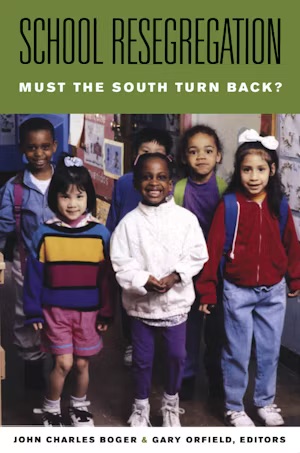About the Book
Confronting a reality that many policy makers would prefer to ignore, contributors to this volume offer the latest information on the trend toward the racial and socioeconomic resegregation of southern schools. In the region that has achieved more widespread public school integration than any other since 1970, resegregation, combined with resource inequities and the current “accountability movement,” is now bringing public education in the South to a critical crossroads.
The significance of these trends cannot be ignored, according to Jack Boger, co-editor of School Resegregation: Must the South Turn Back?, and deputy director of The UNC School of Law’s Center for Civil Rights. “Unless the federal courts uphold the constitutionality of voluntary diversity plans in K-12 public schooling, and unless Southern leaders act decisively to assure that their schools remain diverse, many of the positive economic, social, and political gains experienced in the past thirty years will be jeopardized by the new segregation of southern schools.”
“The South, more than any other region, should reflect on its tragic history of segregation and the terrible risk of losing the gains of the Civil Rights revolution. In this test-obsessed era, the fact that all of the negative results related to segregation are being swept under the rug is distressing,” stated Gary Orfield, co-editor of the book, and director of The Civil Rights Project.
At this critical moment when advocates, teachers, government officials, lawyers and others are deciding the best course of action for tackling the rapid resegregation trend, School Resegregation: Must the South Turn Back? offers a much needed analysis of the situation, the legal landscape and consequences if we as a nation choose to do nothing about these trends.
“This important book provides both good news and bad news…Given that our society is increasingly diverse, students who attend racially isolated schools will be increasingly disadvantaged – regardless of the color of their skin,” stated Willis Hawley, professor emeritus, University of Maryland.
Read a review of this book here and get information about ordering it at the UNC Press.
